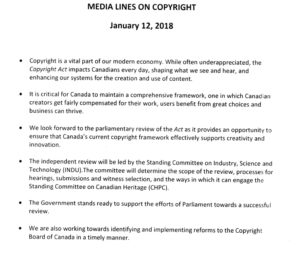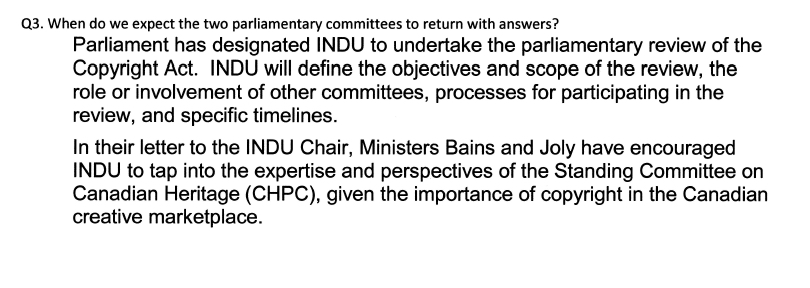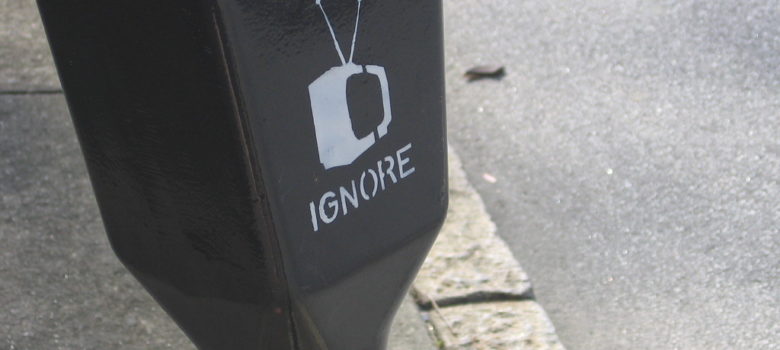The release of the much-anticipated copyright review report from the Standing Committee on Industry, Science and Technology has sparked a range of reactions. From UNEQ’s “the committee despises creators” to Canadian Music Publishers Association’s “disappointing“, some groups would clearly prefer that the government pay attention to the one-sided Canadian Heritage study instead. In fact, the report makes it clear that the committee did not read the Heritage study, as the committee thanked its colleagues and noted that it “looks forward to consulting their report.”
That approach angered Heritage committee member Pierre Nantel, who moved a motion that the committee “express its dismay” that its report was ignored. At this stage, it does not appear that the committee will consider Nantel’s motion as no further meetings are planned before the House of Commons breaks for the summer and then dissolves with the fall election.
Yet the reality is the dismissal of the Heritage report is entirely appropriate for several reasons. This post examines the process reasons and subsequent posts will highlight why the actual copyright review was far more comprehensive, as it accounted for the views of many more stakeholders including more creators and users (this week’s Lawbytes podcast also examines the copyright review report).
The process established by the government is important because it dictated how the copyright review would function and what report would govern future policy development. On that front, the government decided that the Industry committee was solely responsible for the copyright review. According to media lines obtained from Canadian Heritage under the Access to Information Act:
The independent review will be led by the Standing Committee on Industry, Science and Technology (INDU). The committee will determine the scope of the review, processes for hearings, submissions and witness selection, and the ways in which it can engage the Standing Committee on Canadian Heritage (CHPC).

Canadian Heritage Media Lines, obtained under the Access to Information Act
In fact, Canadian Heritage was asked by a journalist when the two committees would return with answers and it corrected the record:

Canadian Heritage Media Response, obtained under the Access to Information Act
In other words, there was no doubt within government – including at Canadian Heritage – that the copyright review was exclusively within the purview of the Industry Committee.
That view is consistent with the joint letter written by Innovation, Science and Economic Development Minister Navdeep Bains and then-Canadian Heritage Minister Melanie Joly to the chair of INDU which set the framework for the review. The only reference to the Canadian Heritage committee came toward the end:
Given that the Copyright Act is a key piece of the creative marketplace legislative framework, we encourage you to tap into the expertise and informed perspectives of the Standing Committee on Canadian Heritage throughout this review. The scope of issues related to copyright is broad and we feel that innovative mechanisms – such as special joint sessions or deep-dive studies on particular subject matters – could ensure that all relevant policy considerations are accounted for in your final report.
It was therefore left to INDU to decide how to “tap into” the Heritage committee expertise. The committee passed the following motion in April 2018:
That the Standing Committee on Industry, Science and Technology request that the Standing Committee on Canadian Heritage conduct a study, in the context of copyright, on remuneration models for artists and creative industries, including rights management and the challenges and opportunities of new access points for creative content such as streaming and emerging platforms.
That Standing Committee on Canadian Heritage call upon the expertise of a broad range of stakeholders impacted by copyright to ensure a holistic understanding of the issues at play.
That Standing Committee on Canadian Heritage provide Standing Committee on Industry, Science and Technology with a summary of testimony and recommendations related to the items mentioned above for the parliamentary review of the Copyright Act.
With its mandate set, the Canadian Heritage committee proceeded to ignore it. Despite being asked to call upon a broad range of stakeholders, the committee’s witness list was far more one-sided than Industry (as will be discussed in a follow-up post). Moreover, the motion called on the Heritage committee to provide INDU with a summary of its testimony and recommendations. The Heritage committee ignored the requirement, instead submitting its report to the House of Commons and misleading some into thinking it was a parallel or shadow copyright review report. It wasn’t and the failure to meet its mandate left INDU with little alternative but to ignore it.
Update: After this post went live, INDU posted its own response to the decision to ignore the Heritage report, confirming that it did not follow its mandate.







